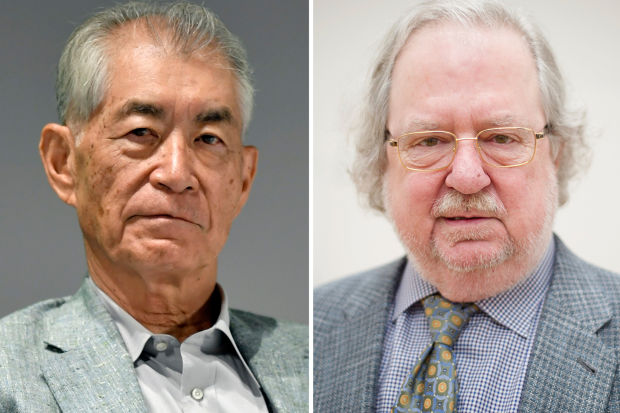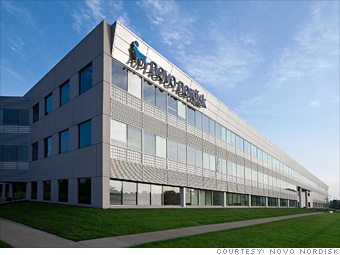Researchers from the United States and Japan won the Nobel Prize in medicine on Monday for discoveries that help the body marshal its cellular troops to attack invading cancers. One cancer doctor said “an untold number of lives … have been saved by the science that they pioneered.”
James Allison of the University of Texas and Tasuku Honjo of Kyoto University will share the 9-million-kronor ($1.01 million) prize for 2018. Their parallel work concerned proteins that act as brakes on the body’s immune system.
OCTOBER IS BREAST CANCER AWARENESS MONTH
Wolchok said “an untold number of lives … have been saved by the science that they pioneered.”
The approach to cancer treatment that was honored with this year’s Nobel was used to treat former U.S. President Jimmy Carter, who was diagnosed in 2015 with melanoma, which had spread to his brain.
Allison’s work, much of it done at the University of California-Berkley, changed that by proving the immune system could identify tumor cells and act against them.
“It’s like your body uses your own army to fight cancer,” she said.
Allison studied a known protein and developed the concept into a new treatment approach, while Honjo discovered a new protein that also operated as a brake on immune cells.
WHAT CAN WOMEN DO TO LOWER BREAST CANCER RISK?
“I’m honored and humbled to receive this prestigious recognition,” Allison said in a statement released by the university’s M.D. Anderson Cancer Center in Houston, where he is a professor.
At news conference later Monday in Kyoto, Honjo said what makes him most delighted is when he hears from patients who have recovered from serious illnesses because of his research.
Honjo, an avid golf player, said a member of a golf club once walked up to him suddenly, thanking him for the discovery that treated his lung cancer.
“He told me, ‘Thanks to you I can play golf again.’ …That was a blissful moment. A comment like that makes me happier than any prize,” he said.
HOW FIGHTING WITH YOUR SPOUSE CAN MAKE YOU SICK
Allison’s drug, known commercially as Yervoy, became the first to extend the survival of patients with late-stage melanoma. In a statement Monday, he urged more support for basic science research.
POLICE OFFICER DIAGNOSED WITH BRAIN CANCER RETURNS TO FORCE
“In some patients, this therapy is remarkably effective,” Jeremy Berg, editor-in-chief of the Science family of journals, told the AP. “The number of different types of cancers for which this approach to immunotherapy is being found to be effective in at least some patients continues to grow.”
No Nobel Literature Prize is being given this year because the Swedish Academy, the body that choses the literature winner, has been in turmoil after sex abuse and financial scandal allegations. The academy hopes to award both the 2018 prize and the 2019 literature prize next year.




